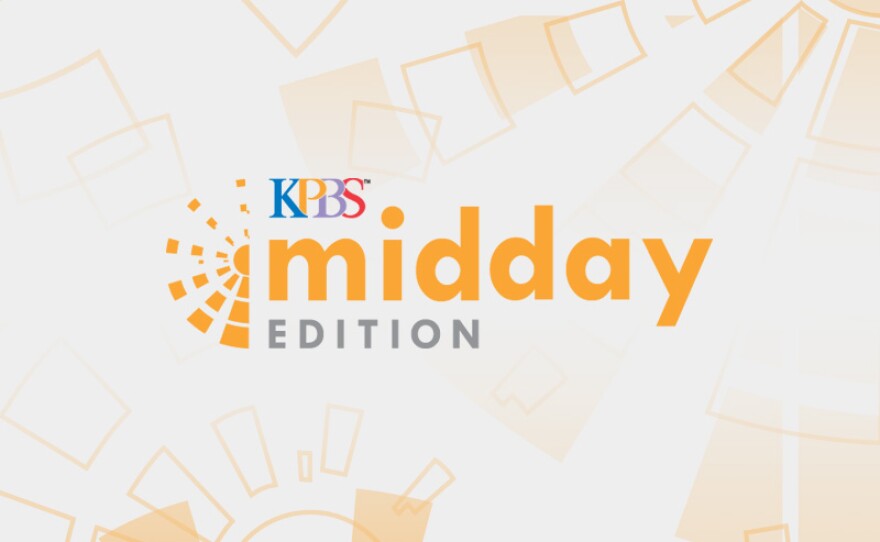>>> I am Maureen Cavanaugh, it is Tuesday, May 22. Our top story on Midday Edition, does the public have a right to know about teachers and school employees that have been investigated or disciplined for inappropriate behavior? That question is at the heart of an effort to obtain records of substantiated instances of sexual misbehavior and misconduct in San Diego schools. Records disclosed reveal dozens of instances but the effort to obtain records from every school district has become a story of its own. Joining me is and investigative reporter with the voice of San Diego. What sort of sexual misconduct has your reporting revealed, so far in San Diego schools? >> A wide variety, inappropriate sexual conduct, groping, massaging, some things that might still fly under the radar or might not rise to the criminal level. That is where you see employees be able to persist for years and with repeated behavior and rack up complaints and recommends. -- Reprimands. >> Are you requesting information about all accusations made by students against teachers? >> Know just substantiated, the way the law and courts have interpreted it is the public only has a right to see those have been proven to be credible or where the employee has been disciplined. >> Reporter: let's talk about one case in particular, a Vista high school math teacher, what did he do that got him reprimanded? >> Initially, they found him sending inappropriate messages with the student, things like the student saying he reminded -- grooming behavior that could pave the way for inappropriate relationships. He was reprimanded in 3 years later they discovered he was sending additional inappropriate messages to a new round of students. They reprimanded him as well, they found other instances of problems with him with other students and decided he was no longer a appropriate fit. Instead of terminating him they transferred him to the middle school and we do not have his name. >> Personal records are exempt from record laws, why did you ask the district for his name? >> They largely are exempt and sometimes they invoke that exemption, the courts have said there is a constitutional right to privacy and for the public to know how it's government is operating. The courts, going back to the 70s and more recently have said there are instances where the right to privacy is diminished or vanishes if complaints are substantiated and if discipline is imposed and wrongdoing is proven. In those cases, the public's right to know, trumps the employees right to privacy. We are seeing that battle play out locally in some specific cases, this is something the courts have addressed. The privacy protection is not ironclad. >> That teacher asked the court to stop you from getting that information. How common is it for individual teachers to fight back against a reporter's request? >> A 2012 court case out of Santa Monica high school paved the way for what is called California reverse public record act cases. They can go to court and try to get an injunction against the school district. They get a temporary restraining order, argue before a judge and there is a -- that said, there are legal standards that the courts have said, if it is proven and the employee has been disciplined the employee has a right to see that. They do not have to have suspension or dismissal charges, it could be a lower-level reprimand but the public has a right to see it. >> How big of an influence is the teachers union? >> A little confusing, the California teachers Association provides legal representation to teachers that are members. They have legal representation that defends their legal rights and they can get representation in civil and criminal cases. When I asked if they were paying for these rights to pay for teacher privacy they said they support the efforts broadly but would not say specifically if they were paying. The attorney that teachers have been using locally has long been used, John Vanderpool seem to indicate his clients are personally and financially responsible. There is some gray area we are not clear. >> It is not all districts were teachers that are fighting this? There are some districts that are handing these records over to you correct? >> The majority for most of the 43 districts in the county are releasing records without issue. 20 said they do not have any responsive records over the last 10 years, I will circle my wagons and see if they didn't miss any cases. Three are still working to gathering records and we have not received a single record from San Diego unified. Others wanted to release documents but several teachers went to court to stop them from doing so. What is interesting is it flips the normal system and script on its head. Districts have to go to court to argue for transparency and the release of the records against the teachers that are fighting to keep those secret. It is an interesting phenomenon. >> Your effort continues, I have been speaking with the voice of San Diego, thank you.
Does the public have a right to know about teachers and school employees who have been investigated or disciplined for inappropriate behavior?
That question is at the heart of an effort by Voice of San Diego to obtain records of substantiated instances of sexual misbehavior and misconduct committed by "employees, agents or volunteers" at San Diego County public schools. Records disclosed so far reveal dozens of instances ranging from sexting to groping. But the fight over those records reveals the tools school districts and individual teachers have to keep them hidden.
Investigative reporter Ashly McGlone asked all 43 public school districts in the county for records in November. She reported that while some districts have refused to produce records at all, others have been stopped by the teachers accused of misconduct.
"Those actions are known as reverse California Public Records Act cases, or reverse-CPRAs," McGlone wrote. "The cases arose after school districts notified employees they planned to release complaints, investigation records and settlements involving the employee. The teachers went to court to get an injunction to stop the release of records."
Voice has won at least one reverse-CPRA case. A judge ruled earlier this month that the Vista Unified School District must release the name of a former Vista High School teacher who was suspended for sending sexually inappropriate messages to students. He was eventually transferred to Vista Magnet Middle School, where he still teaches.
McGlone joins KPBS Midday Edition on Tuesday with more on Voice of San Diego's legal fight.








